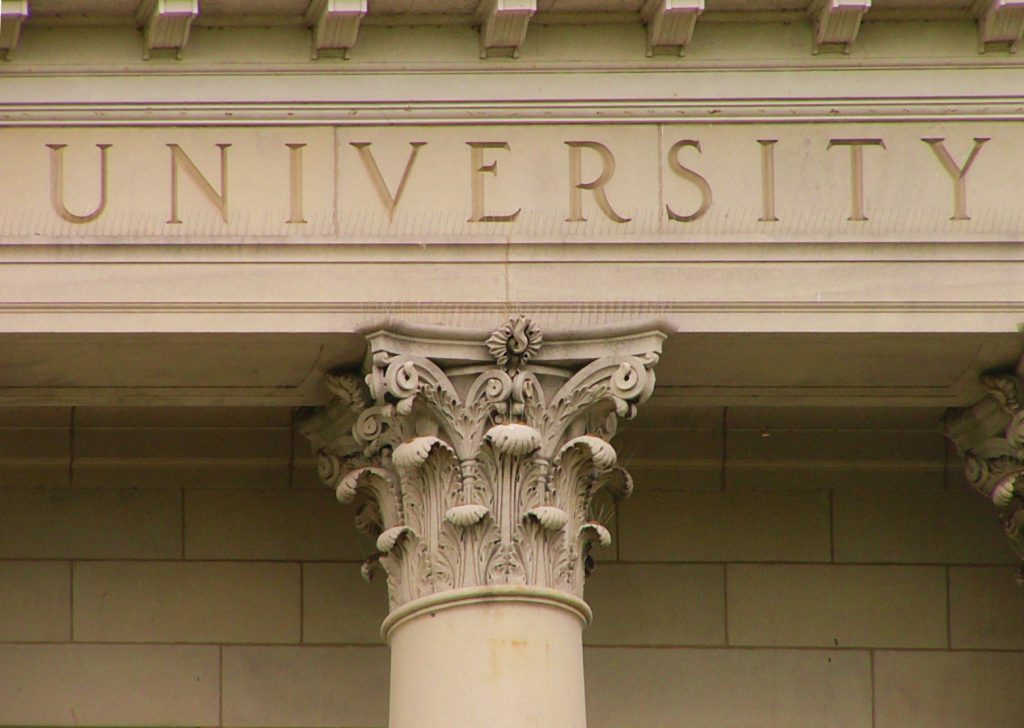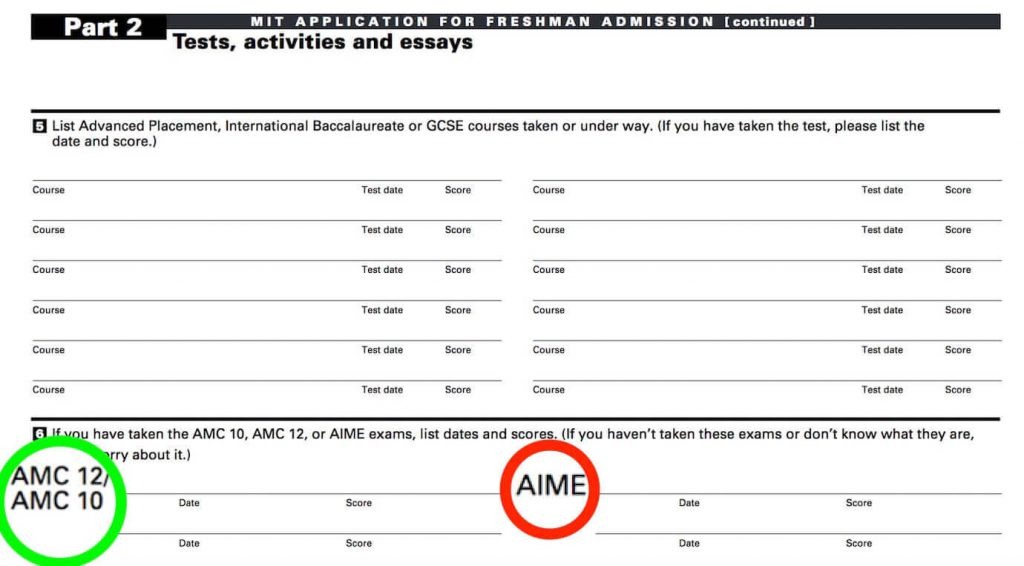In this article, we will summarize the three most important factors in college admissions and what it takes to get into the ivy league.
Part 1: What Do College Admissions Officers Look For?
What is the primary goal of a college admissions officer at a prestigious college?
To find the best students among the applicants who will succeed in college and life and will make their colleges proud. And they have the freedom and the means to do so.
How would you choose the best students if you were to choose only the best among all applicants?
You will probably try to choose the best students who do not only have stellar academics but also
– A Stellar Resume and Portfolio. Why?
Because, success doesn’t come overnight. It’s the accumulation and result of hard work with a plan over the years.
You must have the necessary background to be able to handle college-level courses. The ingredients are:
- A high GPA, proving that the student takes his studies seriously,
- A rigorous coursework which lays the foundation for success in college and beyond (AP courses, honors courses, dual enrollment, etc.)
- Extracurriculars to show a social, curious and inquisitive mind,
- Proof that s/he is a team player and a productive citizen (community service, recommendation letters, etc.)
– Study Habits necessary to complete a demanding and rigorous course sequence in college. Why?
Because, many students fail in college if they haven’t already developed necessary study skills.
– Self-Discipline and Determination to stay on course. Why?
Freshman year at college is the first time for many students to be on their own without being in the confines of a controlled environment. There are many distractions and it’s easy to be a college dropout.
– A goal and a plan for life. Why?
Admissions officers know that students with no plan or goal will be leaves in the wind, changing direction at every turn.
In short: Admissions officers would like to see that it’s your life style what it takes to be successful in college, career and life… that will carry you to success and have you stay on top throughout your life. Not only
Think about it!
If the graduate of an ivy league college struggles to maintain a disciplined and productive life after college because s/he never really absorbed that life style, it was a seasonal illusion posed on them to just get accepted to their dream colleges without really embracing what it takes to be a success story, what would happen to them when they are out of college? Today’s business world is highly competitive and demanding.
If they didn’t develop necessary skills and habits to be successful in high profile careers and life, what would it tell others about that college?
Right!
What Do You Need To Do?
- Plan Your Academics.
- Plan Your Supplementary Classes, and
- Plan Your ExtraCurricular Activities, and
- Do not get distracted.
Part 2: Three Most Important Factors in College Admissions
Activity: Suppose you are an admissions officer at a prestigious college. The college tasked you with choosing the best students who will ace its rigorous curriculum. Your success will be measured by the success of the students you admitted to the college. The higher percentage of the students complete their bachelor’s degrees in 4 years or less and graduating with high GPAs, the more successful you are. How would you choose the best students among the applicants, who will most likely succeed in this demanding environment? What criteria would be your priority?

There are roughly 13 criteria in college admissions:
- Grades
- Curriculum
- SAT
- SAT Subject Tests
- Advanced Courses (AP Courses, Honors Courses, IB Courses, College Courses)
- Class Rank
- Essay
- Recommendation Letters
- Demonstrated Interest
- Interview
- Portfolio (art, music samples)
- Extracurricular Activities
- Internships
You have to be an acrobat to be able to skillfully navigate college admissions process to secure admission to one of the top colleges.
We’ll make it easy for you. While all of these criteria are important, the top two most important ones are highlighted below:
- Grades
- Curriculum
- SAT
- SAT Subject Tests
- Advanced Courses (AP Courses, Honors Courses, IB Courses, College Courses)
- Class Rank
- Essay
- Recommendation Letters
- Demonstrated Interest
- Interview
- Portfolio (art, music samples)
- Extracurricular Activities
- Internships
Why? Here is why:
SAT score’s importance is known to everyone. You have to have a high score on the SAT (or the ACT) to be able to get into a top college. It’s the gatekeeper. However, SAT is not a hard test. It basically measures if students can communicate well in English and have the mathematical skills to be able to attend and follow classes in a post- secondary educational institution. While it shows to the colleges that you meet certain criteria for college admissions, it doesn’t show them if and how advanced you academically are.
If you take advanced courses and pass them with high grades/scores:
- – You prove to the colleges that you are university material. You show that you can handle and successfully complete college-level courses even in high school. You can just continue your already perfect study habits, determination and great planning. That’s primarily what it takes to get into the ivy league.
- – When you take and pass advanced courses in high school (even in middle school at some places), you satisfy most of the other primary factors in college admissions. Here is how:
- Grades: When you plan on, prepare, meet and satisfy prerequisites and take advanced courses,
○ You already have good grades, otherwise your school wouldn’t give you advanced courses
○ Grades in advanced courses, especially in AP Courses are out of 5.0, not 4.0 and gets into your GPA as they are (out of 5)
- Therefore, when you plan early on and take AP courses in high school, your GPA goes up.
- Curriculum: Taking advanced courses in high school means you are following a college- level curriculum in some areas. What could be better?
- Grades: When you plan on, prepare, meet and satisfy prerequisites and take advanced courses,
- SAT Subject Tests, IB or other Advanced or College-Level Courses: You wouldn’t need those as advanced courses would cover these areas. They would be very nice to have but not a necessity.
- Class Rank: When you take many advanced courses and pass with good grades, your class rank naturally would be high
- Essay: When you are such a high level student, writing a great essay would be easy for you because you’ve already proven yourself
- Recommendation Letters: When you are such an advanced student, it would be easy for you to get excellent recommendations from your teachers and counselors would be a piece of cake unless you are a troublemaker
- Other Factors: The other factors on the list are secondary. You should invest in those too but they will be secondary to these most important factors.
There are other options other than AP Courses and exams like college courses, right?
There certainly are alternatives in terms of advanced courses other than APs such as dual enrollment, college courses, International Baccalaureate or other advanced courses. However, not all of those courses are created equal. College courses don’t always mean an advanced level course which would contribute to your success in a particular major in college. A student might be taking multivariable calculus, algebra or origami at a college. Needless to say, they do not contribute equally to college admissions just because they are all given by a college.
AP courses have universal recognition and well known by top colleges. While you have to explain and provide proof on the level of other advanced or college-level courses to have your dream college understand and appreciate the value, the admission officers at those colleges already know AP Courses and exams since they are the same everywhere in the US.
The Secret Ingredient: Character!
Colleges go an extra mile by asking you for recommendation letters, your extra-curricular activities, writing an admission essay or at least asking you if there is anything you would like to add, your portfolio, etc… Why?
Character is a part of what it takes to get into the ivy league. Because, they would like to see the character traits in you necessary to succeed in college and beyond. They would like to make sure they will raise and graduate a capable human being who will positively to the society, the world and the universe as a university graduate.
How about Internships or other factors on the list?
If done right or at a high value place (such as internship at a high tech company or SAT Subject Tests), they can certainly add significant value to your application. However, they are not widely available and they must be additional to your already rigorous curriculum which can be ensured again via AP or college-level courses.
Part 3: When should parents and students start preparing for college?

You need time to put together what it takes to get into the ivy league. If you do not take certain courses in middle school and on-time, it’s already too late to get admitted to top colleges.
Why?
Many students and families do not even realize this fact and live happily without knowing what they have missed.
To summarize Why AP Courses the Most Important Factor in College Admissions, we can re-emphasize the importance of a rigorous curriculum for admission to top colleges. Taking and completing advanced and AP courses before college assures the colleges that you can be a top notch student when you go there as a student.
Why?
It’s obvious: you are already doing it. You are already taking college level courses and nailing it.
But, you have to qualify for AP Courses. High Schools will not give you AP Courses if you do not take the prerequisites before.
As an example, we’ll work on a student’s path who wish to attend engineering or natural sciences at a top level college. Social sciences can be worked on similarly.
Our student (John) would like to attend an ivy league college, so he needs to complete at least 4-6 AP Courses. Here is what he can take in high school:
- 9th Grade: AP Biology, AP Comp.Sc.Prin.
- 10th Grade: AP Chemistry, AP Comp, Sci. A
- 11th Grade: AP Calculus, AP Physics
12th Grade
Why did we cross 12th Grade?: Because right in the beginning of 12th grade, you will submit your college applications in October-December timeframe. So, while taking advanced and AP Courses in your senior year is great, they will not be on your transcript as completed when you apply. No one knows if you will pass of fail them.
In order for John to be able to take these AP Courses as sequenced above, he needs to complete some prerequisites as described below.
- AP Calculus requires PreCalculus
- AP Physics and Chemistry require Algebra-II
So, in order for John to be able to accomplish this, he must take PreCalculus in 10th grade and Algebra II in 9th Grade. His course sequence in math must be:
- 7th Grade: Algebra-I
- 8th Grade: Geometry
- 9th Grade: Algebra-II
However, there is one problem here. Most schools offer one of the two paths below:
Path A: for regular students:
- 8th Grade: PreAlgebra
- 9th Grade: Algebra-I
- 10th Grade: Geometry
- 11th Grade: Algebra-II
- 12th Grade: PreCalculus
Path B: for advanced students
- 8th Grade: Algebra-I
- 9th Grade: Geometry
- 10th Grade: Algebra-II
- 11th Grade: PreCalculus
- 12th Grade: AP Calculus
There is one important action to be taken here: John should take Algebra I in 7th grade, not in 9th or 8th grade as offered to most students. Many schools with advanced students offer this option as well. However, the student must be advanced and find a school that does offer this advanced option.
To be able to take Algebra I in 7th grade, John must take PreAlgebra in 6th grade. And that brings us to 6th Grade. That’s why college prep starts in 6th grade.
If you start planning for college in high school, it will be too late for top notch colleges which might be your dream! In shirt, you need to start early on to put together what it takes to get into the ivy league.

<
Part 4 – Alternative Route: How Competitions Might Propel You to Ivy League Schools
Math Olympiads and Competitions are great opportunities for students who are looking to challenge themselves and advance in mathematics.
Students with a passion for math learn and master advanced, brain-stretching and awe-inspiring material in Number Theory, Algebra, Combinatorics, and Geometry. Over the course of Math Olympiad preparation, students develop problem-solving abilities, critical thinking skills, and logical reasoning through problem solving sessions, practices and competitions. When you have the required passion and dedication to win in these competitions, you prove that you have what it takes to get into the ivy league.
 The most famous and the hardest math competition is the International Mathematical Olympiad (IMO) at which every country is represented by its top 6 high school students (well some might be in middle or even in elementary school like Iurie).Well.. when each country is represented by its best and the brightest students, you can expect it to be a bit hard.
The most famous and the hardest math competition is the International Mathematical Olympiad (IMO) at which every country is represented by its top 6 high school students (well some might be in middle or even in elementary school like Iurie).Well.. when each country is represented by its best and the brightest students, you can expect it to be a bit hard.
BUT, You don’t have to go that high and hard to prove yourself and benefit from these competitions. There are competitions for every grade level.
Math Kangaroo
Math Kangaroo is an international math competition. More than 5 million students from over 50 countries participate every year. There are twelve levels in Math Kangaroo, one for every grade level between the grades 1 and 12. Math Kangaroo’s main concentration is Mathematical Kangaroo is logical combination rather than memorization of mathematical formulas.
MOEMS
Math Olympiads for Elementary and Middle Schools (MOEMS) is a worldwide mathematics competition for students in grades 4 through 8. There is an Elementary School Division (grades 4-6) and a Middle School Division (grades 7-8). Competitions run through November through March every year with one test administered each month at every participating school. Student answer sheets are sent to MOEMS for scoring. Hundreds of thousands of students participate in MOEMS every year. MOEMS is a great way to start competing in math olympiads for elementary and middle school students.
MATHCOUNTS
Mathcounts is the most famous math competition in the United States. Top scorers are recognized at regional, state and national levels. MathCounts has four rounds with increasing difficulty with each step: school, chapter, state, and national. Top scorers of each level advance in to the next one.
American Mathematics Competitions
American Mathematics Competitions (AMC) are a series of competitions through which the team of students who will represent the US at the International Mathematical Olympiad (IMO) are selected.
There are three introductory level competitions:
AMC 8: for students in grades 8 and below
AMC 10: for students in grades 10 and below
AMC 12: for students in grades 12 and below
Top scorers on AMC 10 and AMC 12 are invited to take American Invitational Mathematics Examination (AIME). Top scorers on the AIME are invited to take the United States of America Mathematical Olympiad (USAMO) or United States of America Junior Mathematical Olympiad (USAJMO). The top 50 students on the USAMO are invited to go to the Mathematical Olympiad Summer Program (MOP). 6 students are selected from the top twelve scorers on the USAMO and the Team Selection Test (TST)) to form the United States team for the IMO.
Benefits of Participating in Math Olympiads
Scholarships for Top Scorers of MathCounts
Scholarships are awarded to high-ranking students at the national competition, and many universities give scholarships to the top finishers at the state level. Some of Mathcounts’ sponsors, such as Texas Instruments, General Motors, and Lockheed Martin, also provide scholarships.
Admission to Top Colleges
Do Math Olympiad Courses and Camps Really Help With My College Admissions?
Yes!
Proof? Look at the application form to MIT. It asks for your scores in two competitions: AMC 10/12 and AIME.
Do we need to say more? When they see high scores, they know that you have what it takes to get into the ivy league.
© 2020 CyberMath Academy. All rights reserved

